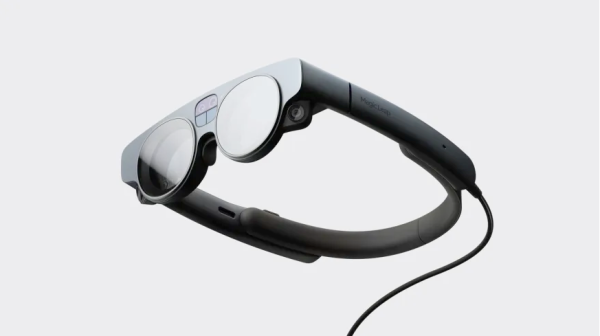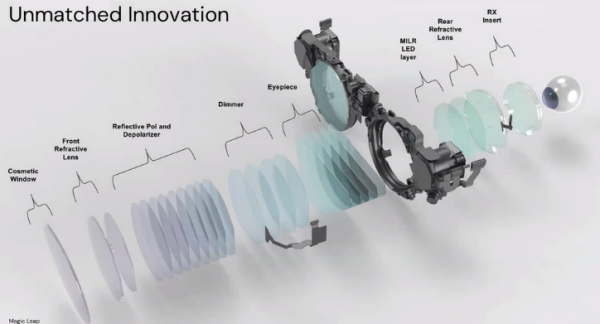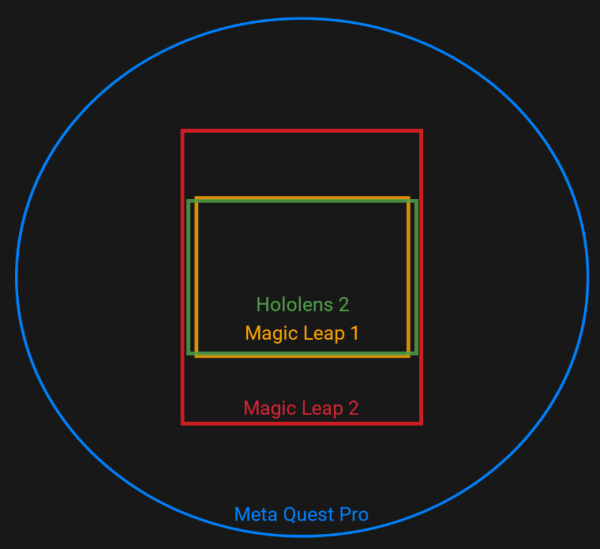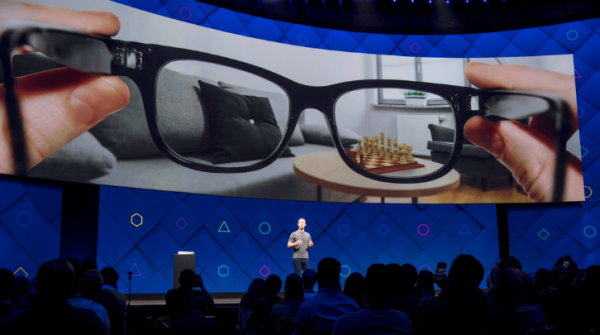Meta and Magic Leap in Talks for the Licensing of Its Mixed Reality Tech
Meta is reportedly in “early discussions” with Magic Leap over the possibility of a “multiyear agreement” for licensing and manufacturing, according to a report by the Financial Times.
Meta is in talks with augmented reality firm Magic Leap which will see the AR tech company license its intellectual property and contract manufacturing for “mainstream AR products.” The report cites people who are familiar with the matter. The report states that the intellectual property Meta is pursuing could include some of Magic Leap’s augmented reality (AR) waveguide patents.

The deal could see Meta get ahead of the other players in the AR space, many of which have already released some commercial products.
The Financial Times reports that Meta and Magic Leap are currently engaged in talks that will see the two companies sign a multi-year IP licensing and manufacturing contract.
There isn’t much detail on the progress of the negotiations. A potential partnership between the two companies will not necessarily result in a jointly developed headset. The deal likely to be inked would see Meta access some of Magic Leap’s optical technology.
Through the partnership, Magic Leap could also help with manufacturing Meta devices, thus enabling Meta to manufacture more of its XR devices domestically rather than relying on Chinese manufacturers.
In a statement to the Financial Times, Magic Leap said that partnerships were increasingly being a “significant line of business and growing opportunity” for the company. Late last year, Magic Leap boss Peggy Johnson also published a blog post titled “What’s Next for Magic Leap” stating that the company had gotten “an incredible amount of interest from across the industry” to license its IP and utilize its patented manufacturing process “to produce optics for others seeking to launch their own mixed reality technology.”
The FT report on the talks between Meta and Magic Leap is coming at a time when Meta is under pressure from investors to produce tangible results after billions of dollars of investments in XR research and development, where Zuckerberg has staked his ambitions and considerable funds. Zuckerberg regards the metaverse as the future of computing and is keen to see Meta take a leading role in the development of the technology. However, the investment is costly for Meta, burning more than $10 billion annually in its Reality Labs division.
Magic Leap first launched an augmented reality headset in 2018 with the Magic Leap One AR headset which cost $2300. In its first six months, the headset sold just 6,000 units, forcing the company to pivot to the enterprise market.

In 2022, the company released the Magic Leap 2 headset which retails at $3300. It features the most advanced transparent optics for an augmented reality device at the moment and advanced technology that Meta is seeking to license.

The Magic Leap 3 headset also has a field of view that’s twice as tall as that of the HoloLens 2 and fourfold the brightness. It also has a dynamic segmented dimming feature that generates more solid-looking virtual objects and also allows the device to be used outdoors.
The transparent optics market still doesn’t have stiff competition. Major AR players such as Meta and Apple are delivering augmented reality using color cameras (color passthrough) located on the front part of a VR-style opaque headset. This implementation is sometimes referred to as mixed reality.
Out of the major tech companies investing in XR hardware, only Microsoft is using transparent optics. Its HoloLens 2 headset has now been around for close to three years.
The camera passthrough used by Meta and Apple provides a much wider field of view as well as a lower production cost compared to waveguides. However, you will have to trade this off for a lower-quality view of the real world.
Transparent optics will be critical in the development of true augmented reality glasses, though. Meta has publicly stated that this is its goal and has been developing its own augmented reality glasses for the past decade.
According to a previous report by The Verge, Meta is aiming to release the first generation of its augmented reality glasses in 2024. However, in June last year, it reportedly pushed the target to 2026 and in March this year, the company’s VP of AR told staff that the target year for the release of the AR headset will be 2027. The company is reportedly facing a challenge in coming up with an AR technology that will be mass producible.

Although it has faced its own sets and challenges, Magic Leap has already shown the ability to develop, manufacture, and patent augmented reality optics. This is why Meta, which is also eyeing an AR future, is interested in partnering with the company.
Apple is also expected to launch its AR headset in early June during its annual WWDC developer conference.
https://virtualrealitytimes.com/2023/05/23/meta-and-magic-leap-in-talks-for-the-licensing-of-its-mixed-reality-tech/https://virtualrealitytimes.com/wp-content/uploads/2023/05/Magic-Leap-2-600x336.pnghttps://virtualrealitytimes.com/wp-content/uploads/2023/05/Magic-Leap-2-150x90.pngBusinessMeta is reportedly in “early discussions” with Magic Leap over the possibility of a “multiyear agreement” for licensing and manufacturing, according to a report by the Financial Times. Meta is in talks with augmented reality firm Magic Leap which will see the AR tech company license its intellectual property and...Rob GrantRob Grant[email protected]AuthorVirtual Reality Times - Metaverse & VR

